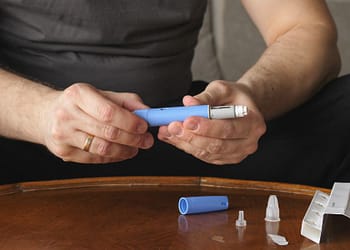The European Agency for Disease Prevention and Control (ECDC) has published a key guide for EU Reference Laboratories (EURLs). This document is designed to coordinate and harmonize the implementation of External Quality Assessments (EQAs) in public health microbiology.
This initiative follows the adoption of Regulations (EU) 2022/2370 and 2022/2371, which strengthen the role of ECDC in the surveillance and assessment of health threats in the EUThe main objective is to improve data comparability, optimize pathogen detection, and strengthen the capacity of public health laboratories in Europe.
Main objectives of the guide for microbiology laboratories
The guide seeks to establish clear principles for the organization and execution of EQAs, ensuring a uniform and reliable evaluation of laboratories. Some of its goals are:
- Maintain the high quality and comparability of laboratory data in the EU.
- Evaluate the capacity for detection and characterization of pathogens.
- Identify training and capacity building needs.
- Provide objective external assessments to improve laboratory performance.
EQAs will allow laboratory performance to be compared, potential flaws in diagnostic processes to be detected, and corrective solutions to be proposed. Furthermore, these assessments will contribute to the harmonization of diagnostic methods throughout the region.
Implementation and structure of EQAs
The assessment process follows a structured cycle ranging from planning to data analysis and reporting, and each EQA will include:
- Planning: Development of a detailed plan with clear objectives, participation requirements, and defined methodology.
- Execution: Sending samples or genomic data to participating laboratories for analysis.
- Results analysis: Comparison of data between laboratories, identification of trends, and determination of improvement needs.
- Reporting and monitoring: Delivery of reports to laboratories, recommendations for improving performance, and certification of participation.
The ECDC also emphasizes that participation in these assessments will be free for selected laboratories and ensures the inclusion of as many countries as possible. Furthermore, laboratories outside the EU will be encouraged to participate provided they are of public health value.
Relevance to public health
This guide establishes an essential framework for continuous quality improvement in public health microbiology. By standardizing the evaluation and comparison of data across laboratories, it strengthens disease surveillance and optimizes the response to cross-border health threats.
The transition to a reference laboratory model, coordinated by the ECDC, promises to strengthen cooperation between countries and, at the same time, improve the efficiency of health responses at the European level. This will facilitate the exchange of information and resources, allowing for a faster and more effective response to health emergencies. Furthermore, ECDC coordination will ensure the harmonization of procedures and standards, resulting in a more efficient and collaborative system.






